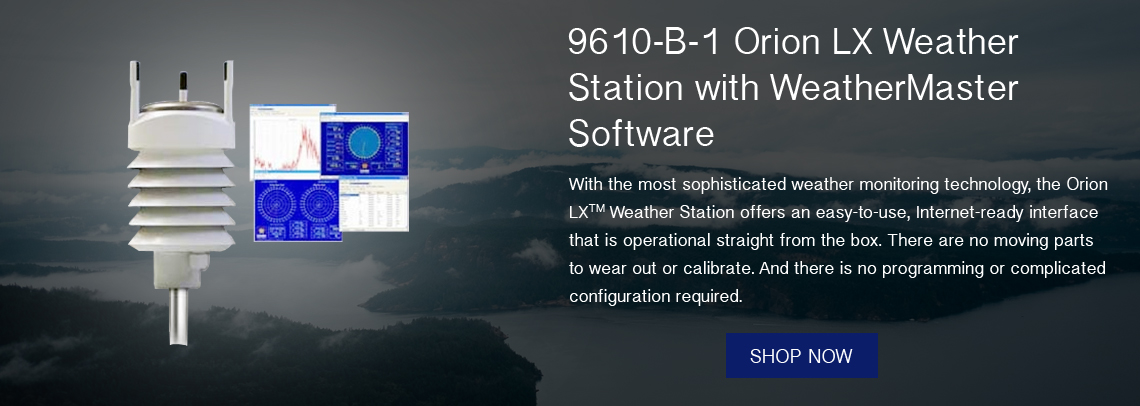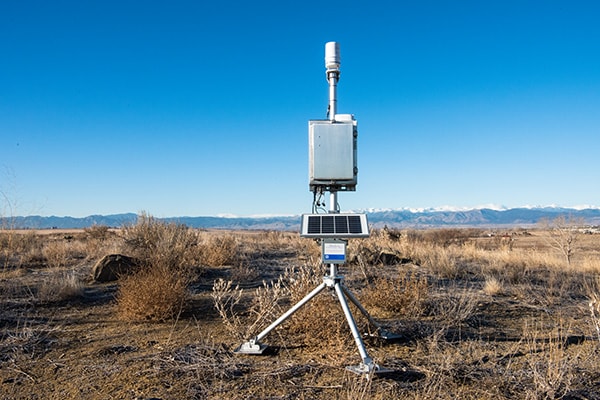The Ultimate Buyer's Overview to Weather Stations: What You Need to Know
The Ultimate Buyer's Overview to Weather Stations: What You Need to Know
Blog Article
Checking Out the Various Kinds Of Expert Climate Terminals for Accurate Information Collection
When it comes to picking the ideal weather condition terminal for information collection, the market provides a range of alternatives tailored to different requirements and setups. Allow's explore the nuances of these expert weather condition terminals to grasp their distinct performances and establish the best fit for particular information collection needs.
Digital Climate Stations
In the realm of atmospheric instrumentation, electronic climate stations stick out as innovative tools for accurate information collection and analysis. These innovative terminals are equipped with sensors that record a large range of weather condition criteria such as temperature, moisture, barometric stress, wind speed, and instructions. The information gathered by electronic weather stations is transferred wirelessly to a main console or a computer system for real-time tracking and evaluation.
Among the key advantages of digital weather condition stations is their ability to offer high-resolution data with accuracy and reliability. This degree of accuracy is vital for various applications, including farming, research study, aeronautics, and emergency situation feedback. Additionally, digital weather terminals commonly come with software application that allows users to picture the data in various formats like charts and charts, facilitating simpler interpretation and decision-making.
Wireless Climate Stations
Building on the capacities of digital weather condition terminals, wireless weather condition terminals supply enhanced comfort and flexibility in data transmission and tracking. By making use of wireless innovation, these climate stations get rid of the requirement for difficult wired connections, permitting simple installment in various areas. The wireless function makes it possible for real-time data tracking from remote locations, providing meteorologists and weather condition lovers with instantaneous accessibility to crucial details.
Wireless climate terminals commonly are composed of sensing units that gather data on temperature, moisture, barometric stress, wind rate, and instructions. These sensors wirelessly transfer the data to a central console or receiver, where it is refined and shown for analysis. Some progressed cordless climate terminals can even connect to the net, permitting individuals to access their weather condition data from another location via smartphones or computers.

Prosumer Weather Condition Terminals
What distinguishes Prosumer Weather condition Stations from typical consumer-grade weather terminals? Prosumer Climate Stations bridge the void in between professional-grade and consumer-grade devices, using advanced features and greater precision than normal home weather condition stations. These terminals are made for weather condition lovers, amateur meteorologists, and local business that require even more exact data than what consumer versions can supply.
Prosumer Weather condition Stations frequently consist of a broader variety of sensors to gauge additional atmospheric specifications such as UV index, leaf moisture, and dirt wetness. They also often tend to have my response a higher degree of longevity and dependability, making them suitable for long-lasting outdoor usage in various ecological conditions.


Industrial Weather Stations
Industrial Climate Stations, likewise called atmospheric tracking systems, are specialized instruments made for specific and robust climate data collection in commercial setups. These stations are customized to meet the one-of-a-kind demands of commercial operations where exact climate details is vital for security, performance, and decision-making processes.
Industrial climate stations are outfitted with sophisticated sensing units that can measure a vast array of atmospheric criteria such as temperature, moisture, wind rate and direction, barometric pressure, and rainfall (Weather Stations). These terminals are typically ruggedly constructed to withstand extreme ecological conditions normally found in industrial atmospheres
One trick feature of industrial weather condition terminals is their capacity to offer real-time information surveillance and evaluation. This allows industrial facilities to expect weather-related dangers, maximize procedures based upon climate condition, and guarantee the security of employees and devices. Furthermore, commercial weather condition terminals can be incorporated right into existing commercial control systems for smooth data management and automation.
Portable Weather Stations
As opposed to stationary industrial weather stations, mobile climate terminals supply adaptability and flexibility for on-the-go information collection in different environmental settings. These compact units are designed to be conveniently transported to various areas, making them excellent for area study, emergency situation reaction situations, agriculture, building and construction websites, and outside events.
Mobile weather stations usually include sensing units for gauging specifications such as temperature, moisture, barometric pressure, wind speed, and wind instructions. Some advanced models might also include extra sensors for keeping an eye on rainfall, solar radiation, and UV degrees. In spite of their small dimension, important source portable climate stations are capable of supplying trusted and precise information similar to that of larger, taken care of stations.
One of the crucial benefits of portable weather condition terminals is their quick implementation and have a peek at this site convenience of setup. Generally, mobile weather stations are vital devices for professionals needing mobile, accurate, and timely weather info in varied settings.
Final Thought
To conclude, professional weather condition terminals come in different kinds such as digital, wireless, prosumer, industrial, and mobile. Each kind provides special attributes and capabilities for accurate data collection. Selecting the appropriate climate station depends upon the certain demands and requirements of the individual. By recognizing the distinctions in between these kinds of climate stations, individuals can make educated choices to guarantee they obtain the most accurate and trustworthy weather condition data for their purposes.
Structure on the capacities of electronic climate stations, wireless weather terminals provide enhanced comfort and adaptability in data transmission and monitoring. Some progressed wireless climate terminals can also link to the net, allowing individuals to access their weather information from another location through mobile phones or computers.
Prosumer Climate Stations bridge the gap between consumer-grade and professional-grade devices, supplying more sophisticated functions and greater accuracy than normal home climate terminals. Weather Stations. On the whole, portable weather condition terminals are important tools for experts calling for mobile, precise, and timely weather information in varied setups
By recognizing the distinctions in between these kinds of weather stations, people can make enlightened choices to ensure they obtain the most specific and trustworthy climate information for their functions.
Report this page